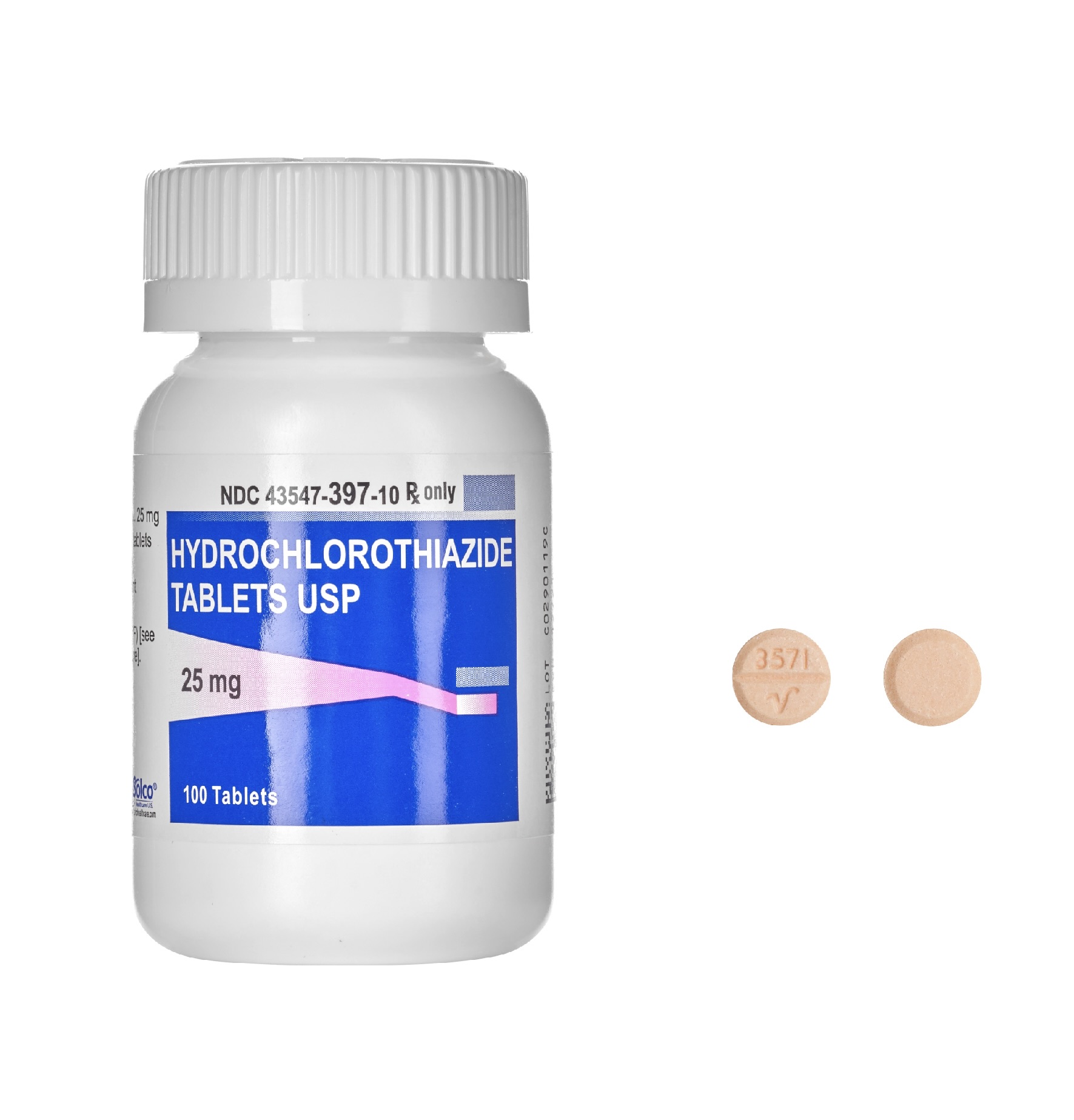Hydrochlorothiazide: Health Benefits & Risks
What are the health benefits of hydrochlorothiazide?
Hydrochlorothiazide (HCTZ) is a medication commonly used to treat high blood pressure (hypertension) and edema (fluid retention). It belongs to a class of medications called diuretics, which help the body get rid of excess salt and water by increasing urine production. Some of the health benefits of hydrochlorothiazide include:
- Lowering blood pressure: Hydrochlorothiazide helps lower blood pressure by reducing the volume of blood in the circulatory system, which reduces the workload on the heart and helps lower blood pressure.
- Reducing edema: Hydrochlorothiazide can help reduce edema by removing excess fluid from the body, which can be beneficial in conditions such as heart failure, liver cirrhosis, and kidney disorders.
- Preventing kidney stones: Hydrochlorothiazide can help prevent calcium kidney stones by reducing the amount of calcium excreted in the urine.
- Treating diabetes insipidus: Hydrochlorothiazide is sometimes used to treat diabetes insipidus, a condition characterized by excessive thirst and excretion of large amounts of dilute urine.
- Protecting against osteoporosis: Some studies suggest that hydrochlorothiazide may help protect against osteoporosis by increasing calcium reabsorption in the kidneys and reducing calcium excretion in the urine.
- Reducing the risk of stroke: Hydrochlorothiazide has been shown to reduce the risk of stroke in people with high blood pressure, especially when used in combination with other blood pressure-lowering medications.
It’s important to use hydrochlorothiazide only as prescribed by a healthcare provider and to follow their instructions carefully. If you have any questions or concerns about hydrochlorothiazide, talk to your healthcare provider.
What are the health risks of hydrochlorothiazide?
Hydrochlorothiazide (HCTZ) is generally considered safe and effective for most people when used as directed, but like all medications, it can cause side effects and carry certain health risks. It’s important to be aware of these risks and discuss them with your healthcare provider before starting treatment. Some of the health risks associated with hydrochlorothiazide include:
- Electrolyte imbalances: Hydrochlorothiazide can cause electrolyte imbalances, particularly low levels of potassium (hypokalemia), sodium (hyponatremia), and magnesium (hypomagnesemia). These imbalances can lead to symptoms such as muscle cramps, weakness, fatigue, and irregular heartbeats.
- Dehydration: Hydrochlorothiazide can increase urination, which can lead to dehydration, especially in hot weather or when combined with other medications that also increase urination.
- Low blood pressure: Hydrochlorothiazide can cause low blood pressure (hypotension), especially in people who are already prone to low blood pressure. Symptoms of low blood pressure include dizziness, lightheadedness, and fainting.
- Kidney problems: Long-term use of hydrochlorothiazide can affect kidney function, especially in people with preexisting kidney disease. It’s important to monitor kidney function regularly while taking hydrochlorothiazide.
- High blood sugar: Hydrochlorothiazide can increase blood sugar levels, especially in people with diabetes. It’s important to monitor blood sugar levels closely if you have diabetes and are taking hydrochlorothiazide.
- Skin reactions: Hydrochlorothiazide can cause skin reactions, including photosensitivity (increased sensitivity to sunlight), rash, and itching.
- Gout: Hydrochlorothiazide can increase the level of uric acid in the blood, which can trigger gout attacks in people with gout.
- Allergic reactions: Some people may experience allergic reactions to hydrochlorothiazide, including rash, itching, swelling, or difficulty breathing. These reactions can be serious and require immediate medical attention.
It’s important to use hydrochlorothiazide only as prescribed by a healthcare provider and to follow their instructions carefully. If you have any questions or concerns about hydrochlorothiazide, talk to your healthcare provider.
TL;DR: Hydrochlorothiazide Summary
Hydrochlorothiazide, often abbreviated as HCTZ, is a prescription medication that belongs to a class of drugs known as thiazide diuretics or water pills. It is commonly prescribed to treat high blood pressure (hypertension) and edema (fluid retention) caused by various medical conditions, such as congestive heart failure, kidney disorders, and liver problems.
Hydrochlorothiazide works by causing the kidneys to remove excess salt and water from the body through urine, which helps to lower blood pressure and reduce swelling or fluid buildup in the tissues.
Hydrochlorothiazide is typically taken orally in the form of tablets or capsules, with or without food. The dosage prescribed will vary depending on the individual’s condition, medical history, and response to treatment.
Common side effects of hydrochlorothiazide may include dizziness, lightheadedness, headache, increased urination, low potassium levels, and upset stomach. More severe side effects may include electrolyte imbalances, allergic reactions, kidney problems, and changes in blood sugar levels. It is important to seek medical attention if you experience any severe or persistent side effects while taking hydrochlorothiazide.
Hydrochlorothiazide can interact with other medications and supplements, so it is important to inform your healthcare provider about any existing medical conditions or medications you are taking before starting treatment with hydrochlorothiazide.
It is important to follow your healthcare provider’s instructions closely while taking hydrochlorothiazide and to attend regular follow-up appointments to monitor your response to treatment. Do not stop taking hydrochlorothiazide abruptly, as this can lead to a rebound increase in blood pressure or fluid retention. Talk to your healthcare provider if you wish to discontinue hydrochlorothiazide or if you have any concerns about taking the medication.
If you have any questions or concerns about taking hydrochlorothiazide, be sure to discuss them with your healthcare provider. It is important to seek medical advice if you have any concerns about your blood pressure or fluid balance or experience any negative side effects while taking hydrochlorothiazide.




